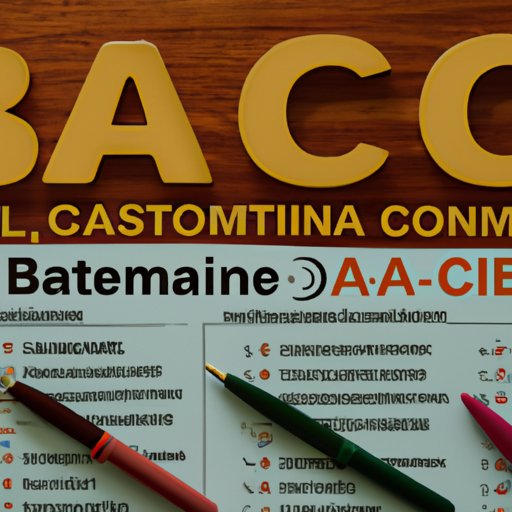Introduction
Board Certified Behavior Analysts (BCBAs) are professionals who specialize in applying principles of behavior analysis to improve the lives of individuals. They design and implement interventions that help people learn new skills, reduce challenging behaviors, and increase independence. Becoming a BCBA can be a rewarding and fulfilling career path, and this article will provide an overview of the requirements, education, and skills needed to become a BCBA.

Understand the Requirements and Education Needed to Become a BCBA
The first step in becoming a BCBA is obtaining the necessary education. All applicants must have at least a bachelor’s degree in psychology or a related field from an accredited institution. A master’s degree in applied behavior analysis (ABA) or a related field is also required. Most programs offer coursework in ABA theory and practice, which is essential for becoming a BCBA. In addition to completing the educational requirements, applicants must also pass the BCBA exam.
Learn the Skills Necessary to Practice as a BCBA
In addition to completing the educational requirements, aspiring BCBAs must also possess certain skills. These include an understanding of human behavior, knowledge of data collection and analysis, and the ability to develop treatment plans. Having strong interpersonal skills is also important, as BCBAs often work closely with families, caregivers, and other professionals to ensure successful outcomes.
Develop an Understanding of Applied Behavior Analysis (ABA)
Applied behavior analysis is a scientific approach to understanding and changing behavior. It focuses on identifying the factors that influence behavior and using positive reinforcement and other strategies to modify behavior. To become a BCBA, it is essential to understand the history and principles of ABA as well as different types of ABA therapies.
Consider Certification and Licensure Options
Once the educational and experiential requirements have been met, aspiring BCBAs must obtain certification. The BCBA certification process includes passing the BCBA exam, submitting proof of completion of the educational and experiential requirements, and providing evidence of ethical conduct. Depending on the state in which they wish to practice, BCBAs may also need to obtain state licensure.
Acquire Experience in the Field of ABA
Gaining experience in the field of ABA is essential for aspiring BCBAs. There are many job opportunities available in the field, including working in schools, residential facilities, private practices, and research settings. Volunteering with organizations that utilize ABA can also be a great way to gain experience and build professional relationships.

Create a Professional Network and Stay Informed
Creating a professional network and staying informed about developments in the field of ABA is essential for aspiring BCBAs. Joining professional associations such as the Association for Behavior Analysis International (ABAI) can help keep BCBAs up to date with the latest research and trends in the field. Attending conferences and seminars can also be beneficial for networking and learning more about ABA.

Seek Out Supervision and Mentorship Opportunities
Finding appropriate supervisors and mentors is also critical for aspiring BCBAs. Supervisors and mentors can provide guidance and feedback on clinical practice and help BCBAs stay abreast of changes in the field. Supervision and mentorship can also help BCBAs develop the skills and confidence needed to practice independently.
Conclusion
Becoming a BCBA is a rewarding and challenging career path. It requires specific educational and experiential requirements, as well as the development of certain skills. Understanding the history and principles of ABA, obtaining certification and licensure, gaining experience in the field, creating a professional network, and seeking out supervision and mentorship opportunities are all important steps in becoming a BCBA. With dedication and hard work, aspiring BCBAs can achieve their goal of becoming a board certified behavior analyst.
(Note: Is this article not meeting your expectations? Do you have knowledge or insights to share? Unlock new opportunities and expand your reach by joining our authors team. Click Registration to join us and share your expertise with our readers.)
